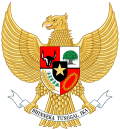| Name | Background | Residence | Membership |
|---|
| Abdul Rasjid | Native medical doctor (private) | Padangsidempoean | 15 June 1931 |
| Ir. Said Mohamad bin Abdullah Alatas | Professional | Batavia | 15 June 1931 |
| Dr. D.H.J. Apituley | Army medic officer | Batavia | 16 May 1927 |
| Th. van Ardenne | Retired Army infantry officer | Batavia | 10 January 1934 |
| Arifin St. Saidi Maharadja [ id ] | Native medical doctor (government) | Fort de Kock | 15 June 1931 |
| W. van Baalen | Chairman of a private company | Batavia | 16 May 1927 |
| C.E. Barre | Resident | Buitenzorg | 15 June 1931 |
| N. Beets | Assistant Resident | Batavia | 16 May 1927 |
| Mr. P. A. Blaauw | Elected delegate | Batavia | 16 May 1927 |
| H.J. de Dreu | Headmaster of government school | Batavia | 1 March 1930 |
| R.W. Dwidjosewojo | Retired teacher and Former Secretary to Sultan of Djokjakarta | Poerwokerto | 18 May 1918 |
| Dr. W.K.H. Feuilletau de Bruyn | Army infantry colonel | Batavia | 15 June 1931 |
| Ir. F.L.P.G. Fournier | Elected delegate | Bandoeng | 30 June 1930 |
| Mr. R.A.A. Fruin | Elected delegate | Bandoeng | 20 May 1924 |
| P.A. Gandasoebrata | Former Regent | Banjoemas | 15 June 1931 |
| K.P.H. Hadiwidjojo | Elected delegate | Batavia | 20 May 1924 |
| Mr. P.M.C.J. Hamer | Professional | in Europe | 15 June 1931 |
| Mr. B.Th.W. van Hasselt | Chief representative from B.P.M. (Bataafse Petroleum Maatschappij) | Batavia | 10 January 1934 |
| Mr. C.C. van Helsdingen | Elected delegate | Batavia | 20 May 1924 |
| H.J. van Holst Pellekaan | Chairman of advisory committee for rubber regulation | Batavia | 15 June 1931 |
| F.H. de Hoog | Elected delegate | Bandoeng | 20 May 1924 |
| C. Hoogenboom | Financial administrator for Governor of West Java | Batavia | 14 May 1934 |
| R. Oto Iskandar di Nata | Elected delegate | Batavia | 15 June 1931 |
| Joebhar Dt. Perpatih [ id ] | District head of Alahanpandjang | Padang | 20 June 1931 |
| Hok Hoei Kan (H. H. Kan) | Elected delegate | Batavia | 18 May 1918 |
| I.J. Kasimo | Deputy of farming consultant | Solo | 15 June 1931 |
| R.M.A.A. Koesoemo Oetojo | Elected delegate | Batavia | 18 May 1918 |
| Dr. H. Kolkman | Chairman of A.V.R.O.S. (Association of rubber planters in East Coast of Sumatra) | Medan | 11 January 1932 |
| Loa Sek Hie | Professional | Batavia | 15 June 1929 |
| G.J. van Lonkhuyzen | Chairman of Association of European Employees | Batavia | 20 May 1924 |
| Toeanku Mahmoed | Civil servant for Governor of Atjeh | Kutaradja | 15 June 1931 |
| P.A. Mandagie | District head of Minahasa with title of Major | Manado | 17 May 1921 |
| Mochtar bin Praboe Mangkoe Negara | Elected delegate | Batavia | 16 May 1927 |
| Ir. Goesti Mohamad Noor | Engineer working in Water Department | Bandjermasin | 15 June 1931 |
| J.A. Monod de Froideville | Elected delegate | Bandoeng | 16 May 1927 |
| Ir. R.C.A.F.J. Nessel | Mayor of Magelang | Magelang | 15 September 1934 |
| R.A.A. Mohamad Notoadisoerjo | Retired regent of Banjoewangi | Semarang | 15 November 1934 |
| R.M. Notosoetarso | Accountant of Netherlands Trade Union | Meester-Cornelis | 15 June 1931 |
| G. Pastor | Chief of Labor Inspector for Java and Madoera | Meester-Cornelis | 15 June 1931 |
| G. Prawotosoemodilogo | Elected delegate | Semarang | 15 June 1931 |
| G.S.S.J. Ratu Langie | Professional | Manado | 16 May 1927 |
| L.L. Rehatta | Civil servant 1st class | Amboina | 10 January 1934 |
| B. Roep | Elected delegate | Lembang | 16 May 1922 |
| E. Smith | Retired legal secretary 1st class | Bandoeng | 26 June 1934 |
| Abdoel Firman Gelar Mangaradja Soangkoepon | Elected delegate | Batavia | 16 May 1927 |
| R. Soekardjo Wirjopranoto | Professional | Malang | 15 June 1931 |
| Tjokorde Gde Rake Soekawati | Civil servant and advisor to Resident of Bali-Lombok | Den Pasar | 20 May 1924 |
| R.P. Soeroso | Chairman of East Indies Trade Union | Modjokerto | 20 May 1924 |
| Mas Soetardjo Kartohadikoesoemo | Elected delegate | Batavia | 15 June 1931 |
| R.Ng. Sosrohadikoesoemo | Delegate from Central Java representative council | Semarang | 15 June 1931 |
| E. Straatemeier | Director of K.P.M. (Royal Netherlands Packing Company) | Batavia | 2 September 1933 |
| Mohamad Hoesni Thamrin | Elected delegate | Batavia | 16 May 1927 |
| R.A.A. Tjakraningrat | Regent | Bangkalan | 16 June 1931 |
| Tjia Tjeng Siang | Retired titular Major of Chinese | Pontianak | 16 May 1927 |
| G.A.Th. Weijer | Elected delegate | Batavia | 10 September 1934 |
| R. Demang Wiradiatmadja | Patih | Madjalengka | 15 June 1931 |
| R.A.A. Wiranatakoesoema | Elected delegate | Batavia | 11 September 1922 |
| R. Wiwoho Poerbohadidjojo | Employee of N.I.S.(East Indies train company) | Semarang | 15 June 1931 |
| Dr. W.L. Wolff | Teacher of M.O. | in Europe | 15 June 1931 |
| Yo Heng Kam | Elected delegate | Batavia | 16 May 1927 |
| Source: Regeeringsalmanak voor Nederlandsch-Indië 1935 Part 2 [4] |


